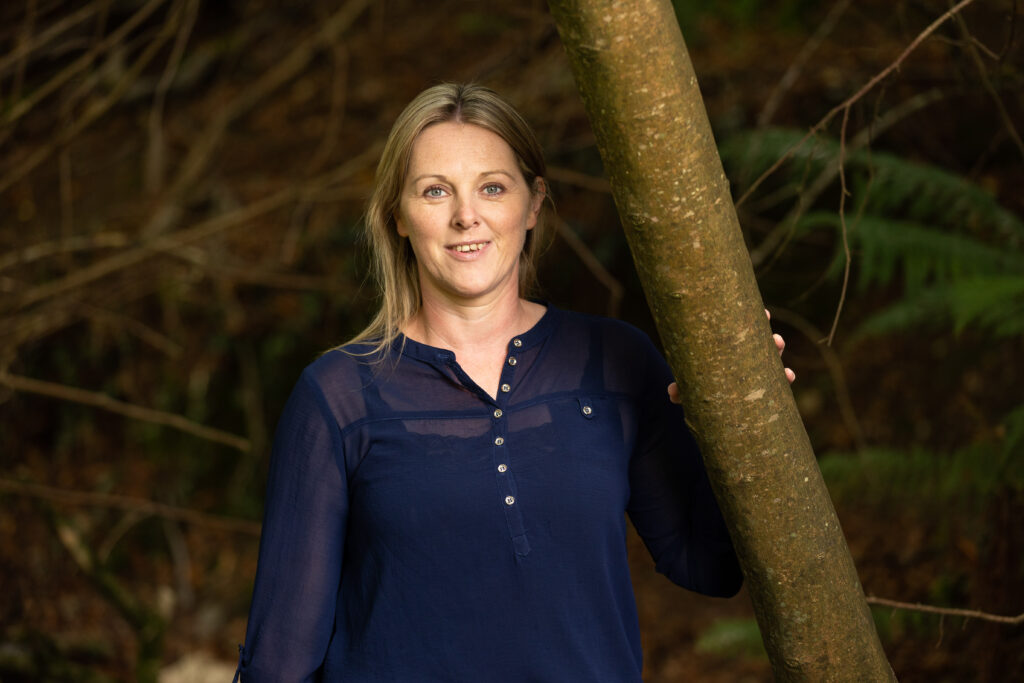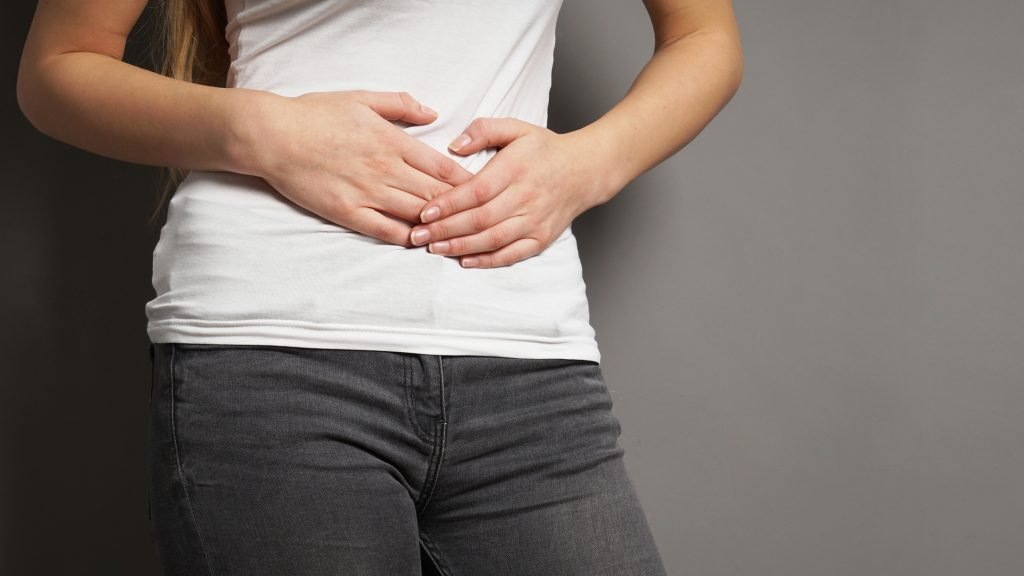The world of nutrition can seem like a complicated place. There are lots of different theories about what to eat, and big companies with big voices pushing one agenda or another. It’s hard to know who to trust – and what to. Today I want to offer you some guidance on some tactics you can use to regain control of your menstrual cycle and support hormone balance throughout the month.
First, it’s important to note that pretty much everyone will experience natural periods of hormonal imbalance or fluctuations at key hormonal turning points in their life – like puberty, pregnancy, and perimenopause. The rest of the time, there is the natural ebb and flow of hormones on a monthly basis. Some months your experience might feel better or worse than others.
Your hormones can be disrupted by the toxins you absorb, stress, poor diet, lifestyle choices, and your weight. The result can have you feeling slightly out of balance, or they might be significant enough for a medical diagnosis. If you have any concerns about this aspect of your health, always talk to your doctor first.
As a nutrition practitioner, I take a food and lifestyle first approach and work alongside other medical practitioners you might be talking to. Time and again I have seen the impact of diet and lifestyle change on clients. If you would like to talk to me about my hormone-balancing nutrition programmes, you can book a session with Sinéad where I will give you expert advise & strategies on what to do.

What’s normal?
You probably already noticed, but different phases of your cycle feel different, and I don’t just mean the difference between bleeding or not bleeding. It commonly looks like this, but don’t forget, everyone is different and a ‘typical’ cycle is not always 28 days.
Week 1 of your cycle – You’re on your period. You might start off feeling a little low if you’re getting cramps or headaches but, since your oestrogen levels are on the up and oestrogen generally has you feeling brighter and more positive. You can expect to start more patient, more energetic, sociable, focussed, curious and more creative in the next few days. If you’re feeling a bit bleugh at the start of your period, you might fancy more comfort foods but that will soon pass and you’ll be happier with lighter, more balanced meals.
If you’re a fan of fasting, once bleeding and any discomfort has passed, you might find it easy to fast longer in the first half of your cycle than at other times.
Week 2 – You’re likely to be in a good mood more often than not. You might be more open, tolerant and hopeful as oestrogen levels climb. You might notice your sleep is great, too. Your libido starts to reach a peak as a result of high oestrogen and testosterone, the latter will also have an impact on how assertive, ambitious and competitive you feel. Although mostly good, the flipside is that some women can be sensitive to the high levels of oestrogen, making them feel a little more on edge. When it comes to food, your hormone balance makes eating healthily easy.
Week 3 – During the first few days of this week, your mood may dip and you may become irritable as oestrogen starts to fall away and progesterone comes in with its typical sedating effect. You’ll start to become quieter, more tired, subdued, doubtful, cautious and more emotionally sensitive as progesterone starts to rise. Your libido also definitely takes a hit thanks to diminishing oestrogen and testosterone. Some women are more sensitive than others to the change in progesterone levels. If this is you, you could notice a dip in your mood, making you feel a little sluggish, sad or irritable. You may experience blood sugar imbalances this week, making you feel a little more hungry. Some women get a little constipated, water retention and breast tenderness due to the rising levels of progesterone.
Week 4 – Your moods are a little more unpredictable in your premenstrual week as both oestrogen and progesterone drop so you could be happy one moment, then angry or sad the next. This drop in oestrogen can trigger PMS, bringing with it mood swings and irritability depending on your sensitivity to changing hormones. You might find you have a bit more energy than you did last week but sleep is trickier thanks to the lower levels of oestrogen. If you incorporate fasting into your daily routine, you’ll want to scale this back during the run-up to your period. Your body will naturally crave more starchy, comforting foods, and restricting your eating window will feel like an uphill climb.

I’m a big fan of data. The more you know about your own body, the more you start to understand how you uniquely work and the greater chance of spotting something ‘wrong’ that you want to seek medical advice for. This is true of your menstrual cycle, too. Monitoring your monthlies is never a bad thing and there is a variety of smartphone apps to help you do that. These include Clue, Cycles, Flo Health, and Period Tracker. There’s also a tracker for your Apple Watch.
Whichever you choose, these apps will help you monitor your cycle effectively. When you count which day of your cycle you are on, you will count day 1 as the first day of your period. If you’re in the middle of your cycle, count from the first day of your last period. If you don’t have a cycle, I suggest counting day 1 as the first day of the new moon. This might sound a bit woo woo and maybe it is but it’s as good a place as any to start.
There have been claims over the years that your menstrual cycle naturally wants to follow the moon. The suggestion is that moonlight might have an impact on your hormones. It’s not entirely unreasonable since we already have the sleep/wake cycled where your body secretes the ‘sleep hormone’ melatonin in relation to levels of light.
Although the words “menstruation” and “menses” come from Latin and Greek words meaning month (mensis) and moon (mene) and the average menstrual cycle is the same as a lunar month, that’s where the similarity likely ends.
It might be that your cycle ties in with the lunar cycle, but the people at Clue, the app that can help you track your cycle, ran the numbers on over 1.5 million women and 7.5 million cycles and concluded there was no correlation between the lunar phases and when their users started their period.
That said, if you’re not currently cycling, you have to start somewhere, and it may as well be with the phases of the moon. Use this resource to find out the moon cycles so you know where to count from – https://www.timeanddate.com/moon/phases/uk/london)
Can what you eat affect your cycle?
Of course! A healthy balanced diet that supports your hormonal and menstrual health is one that balances your blood sugar levels, contains adequate protein with each meal, plenty of fibre to mop up excess hormones, healthy fats and maybe includes some phytoestrogens, which are weak, plant sources of oestrogen like soy products, flaxseeds, lentils, chickpeas, beans and so on. If you’ve been following me for a little while, you have probably heard me talk about these things a lot.
There’s also something called seed cycling that you might be interested in if you feel your hormones are a little out of balance. It’s a great example of using food as medicine. There’s very little robust science to prove it will definitely help you but, since this is a simply as eating specific types of seeds at different times during your menstrual cycle, it’s worth building into your routine if you are looking to rebalance your hormones. There’s literally no risk involved.
Seed cycling is based on the idea that certain seeds contain specific nutrients that can help promote oestrogen or progesterone production at different times during your cycle. I could be helpful for a number of female hormone imbalances, including regulating periods, PCOS, endometriosis and infertility as well as dampening some of the symptoms of perimenopause.
Here’s how seed cycling typically works:
During the first half of your menstrual cycle (follicular phase), which is typically days 1-14, you eat 1 tablespoon each of flaxseeds and pumpkin seeds. Flax seeds contain lignans, which can help support oestrogen production, while pumpkin seeds contain zinc and essential fatty acids that may support progesterone production, which is needed for the next phase of your cycle.
During the second half of your menstrual cycle (luteal phase), which is typically days 15-28, you 1 tablespoon each of sesame seeds and sunflower seeds. Sesame seeds contain lignans that can stop oestrogen levels climbing too high, while sunflower seeds contain vitamin E, which can help support progesterone production.
While there is some anecdotal evidence to suggest that seed cycling may be helpful for promoting hormone balance, more research is needed to confirm its effectiveness. However, incorporating a variety of nutrient-dense seeds into your diet can certainly be a healthy practice.
In addition to their potential hormone-balancing effects, seeds are also a good source of fibre, healthy fats, and other important nutrients. They can be easily added to smoothies, salads, yogurt, or oatmeal, and can help support overall health and well-being. All are rich in fibre, healthy fats and minerals like manganese, magnesium and copper, vitamin B1 and vitamin E, and research shows they could be helpful for a variety of other health outcomes, like reducing inflammation and cholesterol as well as cutting the risk for cardiovascular disease, and improving blood sugar control.
Why Choose Health 4 U?
Quite simply the answer is time, listening & truly hearing what is happening to you. When you attend your GP or a consultant you will have 15- 20 mins appointments looking at the symptoms you present with that day, they don’t have the time to detail all that is going on for you. At Health 4 U, our in depth holistic assessments give us the full picture of what is going on in your body. We look at your current medical history, your past medical history right back to when you were born, your family history, your lifestyle, home life, work life and then we go through each body system in detail, we fact find, looking to find the root cause of imbalances, the reason why you are experiencing whichever symptom / difficultly your having, we don’t treat disease or condition perse, we support and guide you to optimal health to manage current health issues / prevent chronic disease.
Health 4 U
Sinéad has developed online courses which are generally shorter than her Individual Programmes, to give you a taster of how Nutritional Therapy can help you to overcome these boundaries & lead you to Self-Compassion & successful Health Goals!


